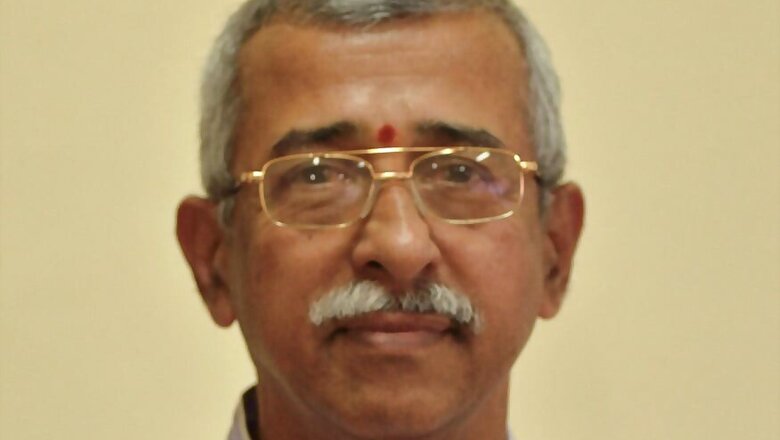
views
Chamu Krishna Shastry was in news the last time when he quit the Union HRD Ministry as an advisor. His sudden exit had set the tongues wagging. The co-founder of the RSS-affiliated Samskrita Bharati, which aims to make Sanskrit popular across the world, has now been honoured with a Padma Shri. Shastry was on the committee constituted by the HRD ministry to chalk out a roadmap for the development of Sanskrit. Excerpts from an interview with News18’s Eram Agha:
Why did you resign from the HRD Ministry as a senior consultant on languages?
I resigned from the ministry for promoting Sanskrit in a bigger way. I joined a new centre, Sanskrit Promotion Foundation, as a Trustee Secretary. The centre counts among its leaders RC Lahoti, the former chief justice of India, N Gopalaswami, a former Chief Election Commissioner of India, and S Gurumurthy. We will be developing attractive courses that will be offered online. There will be various types of e-learning program at advanced levels.
But surely it would have been more effective to promote Sanskrit through the government?
I believe efforts to bring change in the society should be non-governmental. Any change of long-term impact can brought out only through social change. I have worked both with Smriti Irani and Prakash Javadekar, and I found both to be interested in the promotion of Indian languages.
The Union government is doing a lot and focusing on teacher training to change the Sanskrit education system. As I understand, government thinking is not to make Sanskrit compulsory but to make Sanskrit teaching attractive.
Should Sanskrit made compulsory in schools?
No. We are against making Sanskrit compulsory, for that matter, making any language compulsory. There should be options to learn every language and choice should be given to the students. Today, students are intelligent enough to know what they want.
The focus needs to be on to make people aware that Sanskrit is a simple language and it belongs to all. They should know the great knowledge treasures hidden in Sanskrit literature. The teaching methods in schools are not simple, they should be made more attractive. Sanskrit needs to be connected with modern subjects.
Run us through some of the suggestions that you have made to the HRD ministry…
Training of Sanskrit teachers should be taken up in a big way. About five lakh Sanskrit teachers in the country have to be trained in the next three to four year in two rounds, each of one week’s duration. HRD Ministry should draw a master plan for the school education and implement it starting from the year 2016-2017 through SCERTs (State Councils of Educational Research and Training), DIETs (District Institutes of Education and Training) in collaboration with other educational institutions and NGOs working in this field.
Also, the UGC should take a policy decision at national level in this regard and may write to all the universities that Sanskrit may be implemented in a phased manner starting from 2016-2017 with the target to achieve the objective in five or eight years. Every university may conduct two weeks’ workshop to all its Sanskrit faculty members for developing a bridge course for students, for discussing appropriate teaching methods and for enhancing their own communicative skills in Sanskrit.
















Comments
0 comment